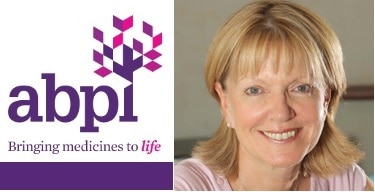
ABPI responds to UK medicines cost controversy
pharmafile | September 25, 2015 | News story | Medical Communications, Sales and Marketing | ABPI, Cancer Drugs Fund, NHS
Alison Clough, acting CEO of the Association of the British Pharmaceutical Industry (ABPI), has responded to recent reports in the media concerning the spiralling cost of medicines in the UK, and the premium it apparently pays when compared to other countries.
Coverage has claimed that UK-based patients are being denied access to some potentially life-extending cancer drugs as a result of companies charging higher prices for the same medications in Britain than in other countries.
Examples cited include the breast cancer drug lapatinib- which costs about £24,000 per patient per year in the UK, compared to £11,600 in Thailand, and the leukaemia treatment dasatinib- costing about £22,000 per patient per year in the UK, and less than half this amount in Brazil.
The UK is also being charged more than economically-comparable nations. For example, another Leukaemia treatment, imatinib, costs Britain about £20,900 per patient per year, compared to the roughly £18,800 charged to France.
Such treatments are unavailable to patients on the NHS, as they are not deemed cost-effective. But analysts have claimed some of the drugs removed from the Cancer Drugs Fund are relatively cheap to manufacture, and the high cost charged to the UK is not justified.
Clough pointed to the funds incoming from the Pharmaceutical Price Regulation Scheme (PPRS) deal agreed between pharma and the UK government, as evidence that the UK’s deal is not as unfair as media would make it, while at the same time acknowledging that it was crucial British patients’ cancer treatment did not fall further behind those of other European nations.
She comments: “The medicines developed by our member companies make a huge contribution to the health and wealth of our nation. The ABPI is responsible for negotiating with the Government, on behalf of the branded pharmaceutical industry, for the pricing scheme for medicines in the UK. Under the Pharmaceutical Price Regulation Scheme (PPRS), the pharmaceutical industry contributes and pays for growth in branded medicines used in the NHS. This year alone our members will pay back nearly £1billion in payments to the Government. Overall we expect to pay back £4billion over the five years of the current scheme.
“Industry did this deal with the Government to provide breathing space for an NHS under considerable financial pressure to enable patients’ access to newer medicines. The UK already lags behind the rest of Europe in investing in medicines and the NHS in England currently spends just under 10p in every £1 on branded medicines, which represents just under 10% of the overall NHS budget. Moreover, recent growth figures for branded medicines in the UK have been going down, raising concerns that NHS patients in the UK are losing out when it comes to accessing the latest medicines.
“We passionately believe that NHS patients should be able to receive the medicines their clinicians believe they will benefit from and we are committed to working with the NHS and the Government to achieve this.”
Joel Levy
Related Content

NICE recommends migraine treatment for NHS use
The National Institute for Health and Care Excellence (NICE) has shared draft guidance recommending AbbVie’s …

Novo Nordisk launches Wegovy in the UK
Novo Nordisk has today announced that Wegovy (semaglutide injection) is now available in the UK …

Bristol Myers Squibb’s Sotyktu recommended for NHS use for adult patients with psoriasis
Bristol Myers Squibb (BMS) has announced that the National Institute for Health and Care Excellence …








